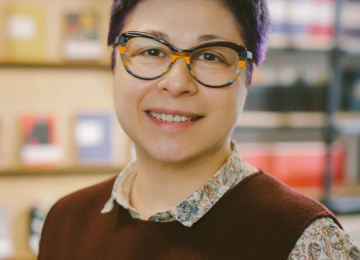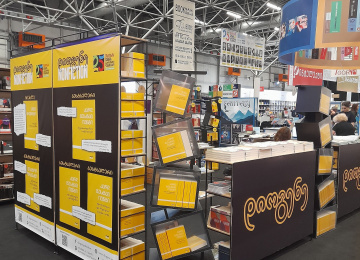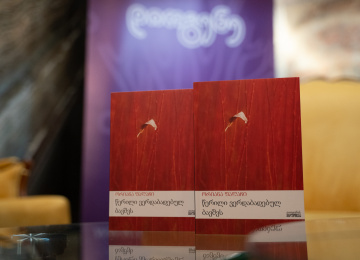
When Tamar Lebanidze embarked on a journey to her own business in 1995, Georgia was in the throes of significant political, economic, and social change. Traveling from her country's turbulent past towards a better future, she decided there was just one phrase that could describe her company's mission: “Fight for development.” So her company Diogene’s story begins at the crossroads of two centuries, with a determined entrepreneur striving to shape a brighter and more prosperous future for her nation.
Driven by its mission
The Diogene publishing house was named after the ancient Greek philosopher Diogenes of Sinope, known for his pursuit of truth, simplicity, and self-sufficiency. Lebanidze co-founded the company Diogene with three of her friends. However, as time went on, the others decided to pursue different paths, leaving Tamar to take the reins and lead the company on her own.
“I could have chosen the same path and started my own business, but I decided that Diogene had to exist – I felt immense responsibility for it,” Lebanidze said. “Even though I was well over 30 years old, I felt like a 16-year-old single mother who had to take care of her child.”
Diogene’s main principles are decency, nurturing professional development, and seeking novelty, which resonates well with the Greek philosopher, who valued constant self-improvement and the relentless pursuit of truth and knowledge. Diogene’s strong character as a brand led to it becoming one of the most prominent publishing houses in Georgia.
Over the years Diogene has carried out many successful projects, but for Lebanidze, it’s especially important when “the publishing house gets ahead of events.” This happened when Diogene published a novel by the modern British writer Julian Barnes, translated into Georgian with permission, months before its publication in English.
Driven by its mission, Diogene prioritizes not only projects that are beneficial for the publishing house itself, but those that are essential for the development of the literature field in Georgia. One of them is the PenMarathon competition, which was first held in 2002 and has since become an annual event, occasionally taking place online or internationally. PenMarathon requires participants to isolate themselves from the outside world and write a sample of artistic prose within a limited time, and in line with a task set by the competition jury.
Just like Georgia’s journey from the early 90s, the road for Diogene has been turbulent, and together with success it has had its share of major setbacks.
“Now we’ve entered a new phase of development, which means getting out of crisis and achieving stability. And in the end, the vast experience we have, both good and bad, will lead us to more success,” Lebanidze said, adding that after every storm, the sun comes out.
Entering the digital world
More than 28 years after its founding, Diogene is currently undergoing structural, operational, and strategic changes. Any new activity will be grounded in a thorough analysis of current trends while upholding the signature high-quality standards that define Diogene's legacy.
Diogene is making changes within the EBRD’s Advice for Small Businesses programme, with consultancy services supported by the EU4Business.
With the COVID-19 pandemic came a higher need for digitalization in Georgia. Diogene quickly constructed a website on a readily available platform right before the Tbilisi Book Festival, which was held online. But soon enough Lebanidze and her team discovered that the platform had many drawbacks, which made it difficult to work with.
Luckily, Diogene got support from the "DIGITAL RE4M" Programme in Georgia, which is specifically designed to help Georgian SMEs with digital transformation and recovery after the COVID-19 pandemic. With the project’s support, Diogene was able to create a well-designed, highly functional website that features an online shop, the company’s full story, and information on authors.
Lebanidze explains that the website not only boosts Diogene’s own sales but also serves as an informative platform for customers, showcasing new publications, which, in turn, encourages them to visit local bookstores and purchase Diogene's products.
“Our cooperation with EU4Business and the EBRD is more than just cooperation,” Lebanidze said, adding that the company is continuing to leverage the support it has received, and is constantly expanding the website.
“In some ways, the publishing business is a competition, and it’s crucial to have opportunities for development,” Lebanidze said.
“The support we got from the EU was one such opportunity.”






